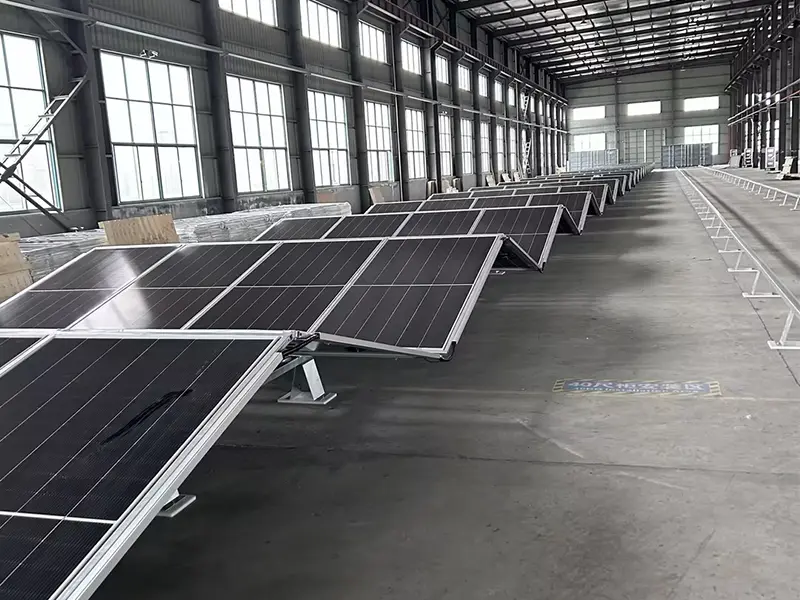Folding solar panels are a favorite of outdoor enthusiasts and individuals who require portable energy solutions. Their convenience and portability make them the best for camping, RV adventures, and off-grid adventures. But are they really effective? Let's take a look at their advantages, disadvantages, and factors to determine if they are the ideal solution for your energy needs.
Advantages of Folding Solar Panels
- Portability and Convenience
Folding solar panels are simple to transport and install. Their compact and lightweight build make them easy for users to transport from place to place, and they are ideal for areas where it is hard to access other power sources. Unfold the panel, place it in the sunlight, and plug it into your device or power station. No installation processes or hard wiring is required.
- High Efficiency
The majority of modern foldable solar panels incorporate state-of-the-art monocrystalline solar cells with 18-23% efficiency. With greater efficiency comes greater power through the utilization of the same surface area, as well as higher charging speed and maximum utilization of energy even when light conditions are poor.
- Versatility
These panels are able to charge devices that range in size from smartphones and laptops to portable power stations. The ability to do so makes them suitable for a variety of applications, such as emergency back-up power as well as use in outdoor recreation.
- Eco-Friendly Energy Source
Utilization of solar energy reduces reliance on fossil fuels, reducing carbon emissions and a cleaner environment. By using folding solar panels, you're tapping into a renewable source of energy that's not only sustainable but also clean.
Limitations and Considerations
While folding solar panels have numerous benefits, one should be aware of their disadvantages:
- Durability Problems
Folding solar panels are not typically made to endure extreme weather conditions on a long-term basis. They may not be as durable against environmental elements like UV light, wind-borne objects, rain, and hail as fixed panels. Furthermore, without a fixed frame, they can be easily blown away by strong winds.
- Reduced Power Output
Due to their compact nature, folding solar panels will typically produce less power than stationary, larger solar panels. This limitation makes them unlikely to be used to charge extremely energy-consuming devices or utilized for long-term energy requirements.
- Variability in Performance
Performance of folding solar panels is determined by sunlight direction, weather conditions, and potential obstacles. Positioning them in a good spot with the correct orientation is crucial to obtain the maximum output.
Real-World Applications and User Experiences
Outdoor enthusiasts have found folding solar panels to be helpful travel companions. Hikers and campers, for instance, like having the ability to power essential gear like GPS units, phones, and cameras away from the grid. A reviewer noted their travel panel powered two 300W power stations in a day of sunlight, indicating its value on extended trips.
However, it can be noted that even though such panels are convenient, they may not always offer their rated output. Real-world conditions have the tendency to lead to less input, so adjusting expectations and taking into account what the panel can do is prudent.
Industry Trends and Innovations
The portable solar panel market is continually advancing, with improvements aimed at efficiency and ease of use. Technologies such as perovskite solar cells have been studied to increase their efficiency, with better performance under various lighting conditions. Anker's Solix Solar Beach Umbrella, for example, employs perovskite cells to provide up to 100W of output, which shows the potential of new technologies in portable solar panels.
Key Factors When Selecting Folding Solar Panels
When choosing a folding solar panel, take the following into account:
- Power Output:Make sure the wattage of the panel matches your energy requirements. Higher wattage panels are quicker at charging devices but can be heavier.
- Compatibility:Ensure that the panel is compatible with your devices or power stations in terms of both voltage and connector types.
- Durability:Opt for panels with solid construction and weather-resistant materials to withstand outdoor exposure.
- Portability: Look at the weight and folded dimensions of the panel to see if it will suit your traveling requirements.
Taking Your Energy Requirements into Account
Prior to purchasing a folding solar panel, ask yourself the following questions:
- What am I charging, and how much power will they require?
- Will I be using the panel heavily in harsh environmental conditions?
- Is portability more valuable than power output for my needs?
By considering these questions, you can more effectively determine whether a folding solar panel is suitable for your personal needs and expectations.
In conclusion, foldable solar panels are convenient and eco-friendly for on-the-go energy needs, especially outdoor recreation and crisis response. Despite some disadvantages, however, information about their efficiency and choosing the proper model can provide a reliable source of energy while on the move.
To give you an idea of the comparison between rigid solar panels and foldable solar panels, here's a useful video:

